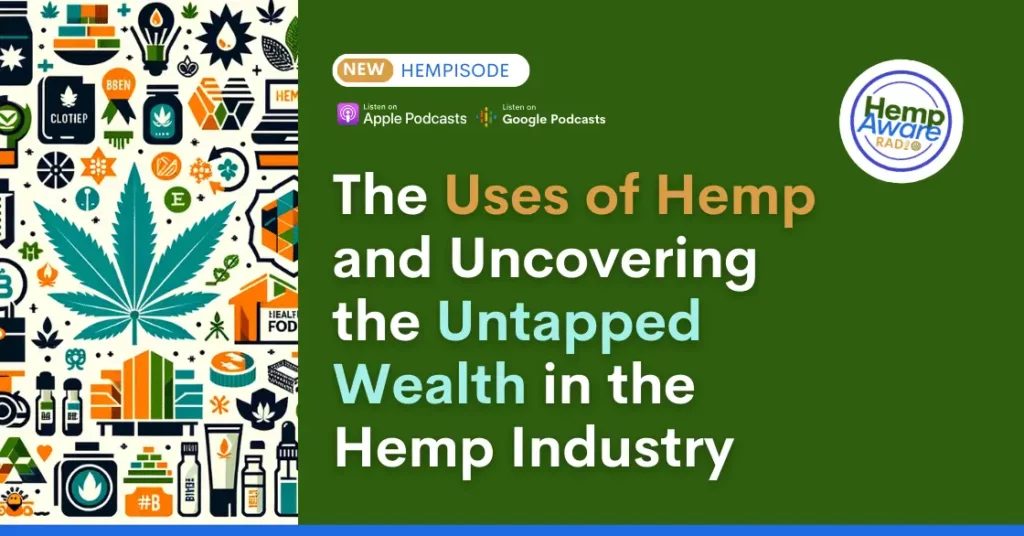The hemp industry has gained significant attention in recent years due to its potential for economic growth and sustainability.
In this blog post, we will explore the benefits and uses of hemp, its legality, the current state of the hemp industry, its prospects for prosperity, and the challenges and opportunities facing the industry.
The Uses of Hemp
Hemp has a long and rich history of use in various industries, including textiles, food, and medicine.
This versatile plant has been cultivated and utilized by civilizations for centuries due to its numerous benefits and applications.
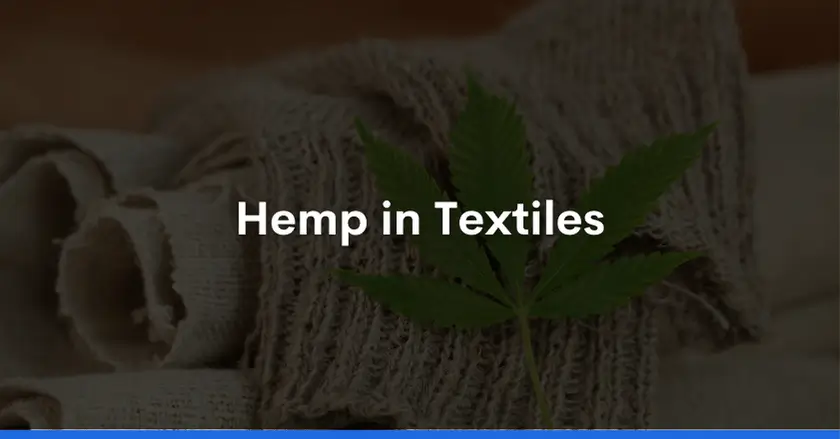
Hemp in Textiles
One of the oldest and most well-known uses of hemp is in the textile industry.
Hemp fibers are exceptionally strong and durable, making them ideal for producing fabrics and clothing that can withstand wear and tear.
The fibers can be spun into yarns or threads and woven into different textile varieties, including linen, canvas, and twine.
Hemp textiles have been used for millennia to create clothing, bags, sails, and ropes.
Historical records show that hemp was utilized by ancient civilizations, such as China, India, and Egypt, for making textiles and other woven goods.
The durability of hemp fabrics has stood the test of time, as archaeological evidence attests to the preservation of hemp-based textiles dating back thousands of years.

Hemp in Food
Hemp seeds, also known as hemp hearts, are highly nutritious and have been consumed as food for centuries.
They are a rich source of protein, healthy fats, and essential minerals, making them a valuable addition to a healthy diet.
With the legalization of hemp cultivation in many countries, the demand for hemp seeds and hemp-derived food products has significantly increased.
Hemp seeds can be consumed raw, roasted, or ground into a powder. They are used often in baking, cooking, and as a topping for salads, smoothies, and yogurt.
In addition to hemp seeds, hemp oil is utilized also in the culinary world.
The oil is extracted from the seeds and can be applied in cooking or salad dressing.
It has a pleasant nutty flavor and is considered a healthy alternative to other cooking oils due to its favorable ratio of omega-3 to omega-6 fatty acids.

Hemp in Medicine
Throughout history, hemp is well-known for its medicinal properties. Thus, it is in traditional medicine practices in various cultures.
The plant contains compounds known as cannabinoids, which have therapeutic effects on the human body.
One of the most well-known cannabinoids found in hemp is cannabidiol or CBD.
CBD has gained popularity in recent years for its potential health benefits, including pain relief, anxiety reduction, and anti-inflammatory properties.
CBD oil is from hemp plants via extraction. It is now widely available in various forms, including tinctures, capsules, and topicals.
In addition to CBD, hemp also contains other beneficial cannabinoids, such as cannabigerol (CBG) and cannabinol (CBN), which have unique properties and potential health benefits.
Research into the therapeutic uses of these cannabinoids is ongoing, and their potential applications in medicine continue to expand.
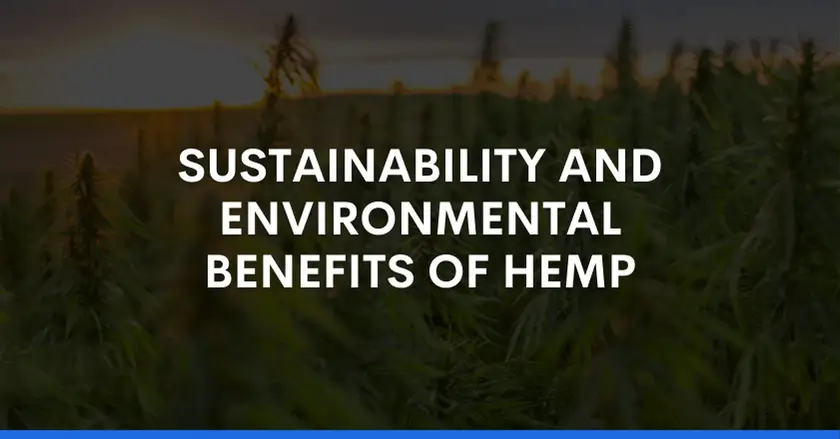
Sustainability and Environmental Benefits of Hemp
One of the most significant advantages of hemp is its sustainability and environmental benefits. Hemp is considered a highly sustainable crop due to its rapid growth cycle, low water requirements, and minimal need for pesticides and herbicides.
Hemp plants absorb large amounts of carbon dioxide (CO2) from the atmosphere, helping to mitigate climate change. They also have deep roots that help prevent erosion and improve soil health.
The cultivation of hemp can contribute to the restoration of degraded soils and the conservation of water resources.
Furthermore, hemp fibers can be recycled and reused, reducing waste and the need for virgin materials.
Hemp-based textiles are known for their durability and can outlast many other types of fabrics, reducing the frequency of replacements and minimizing the fashion industry’s environmental impact.
Overall, the rise of hemp signifies a shift towards a more sustainable and eco-conscious future.
The versatility and numerous benefits of hemp make it a promising and attractive option for various industries, from textiles to food and medicine.
As the demand for hemp products continues to grow, it is crucial to prioritize responsible cultivation and production practices to ensure the long-term viability and sustainability of the plant.
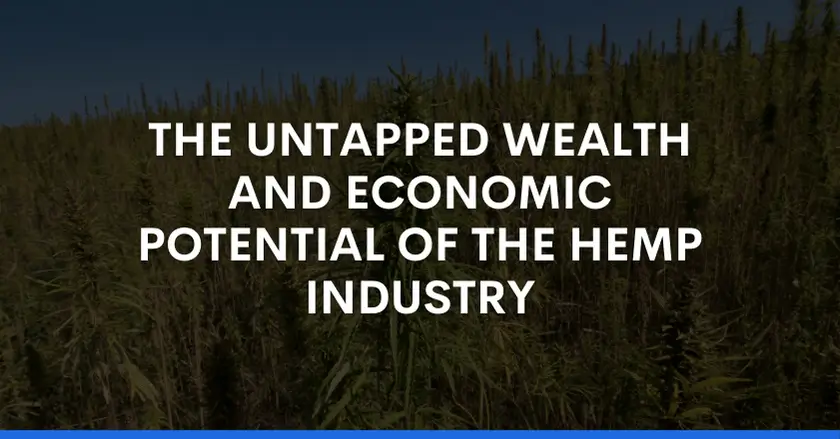
The Untapped Wealth and Economic Potential of the Hemp Industry
With projections indicating a market value of $26.6 billion by 2025, it is clear that hemp businesses and cultivation can generate significant economic growth.
Job Opportunities and Local Economies
One of the key factors contributing to the economic potential of the hemp industry is its ability to provide job opportunities for farmers and stimulate local economies.
Hemp cultivation requires skilled labor, from planting and harvesting to processing and manufacturing. It creates employment opportunities for individuals in rural areas where agriculture is a prominent industry.
So, by investing in hemp cultivation, farmers can diversify their crop portfolio and secure a sustainable source of income.
It not only benefits individual farmers. It also has a ripple effect on the local economy.
Increased hemp cultivation leads to the establishment of processing facilities and manufacturing plants, creating a demand for additional jobs in these sectors.
Versatility and Diverse Market
Another aspect of the hemp industry’s economic potential lies in the versatility of the plant and the diverse range of products it can produce.
Hemp makes textiles, construction materials, biofuels, food products, beauty products, and biodegradable plastics.
This wide range of applications creates a diverse market with multiple revenue streams.
As consumer demand for sustainable and eco-friendly products rises, the hemp industry is well-positioned to meet these needs.
The versatility of hemp allows for environmentally friendly alternatives to traditionally manufactured products. It not only drives economic growth but contributes to a more sustainable future.
Driving Innovation and Economic Growth
Investments in hemp research and development have the potential to drive innovation within the industry, ultimately leading to further economic growth.
Hemp has nutritional benefits, with hemp seed being a rich source of protein, omega-3 fatty acids, and other essential nutrients.
While research continues to uncover new applications and benefits of hemp, the industry will flourish.
Innovations in hemp processing and manufacturing techniques can lead to the development of new products and create additional market opportunities.
It will drive economic growth and create new jobs in research and development, production, and hemp marketing.
The economic potential of the hemp industry extends far beyond what can be condensed in a single blog post.
From job creation and local economic stimulation to the diverse market and potential for innovation, hemp cultivation offers numerous opportunities for economic growth.
As governments and businesses recognize the value of this versatile plant, we can expect to see continued investment and expansion in the hemp industry.
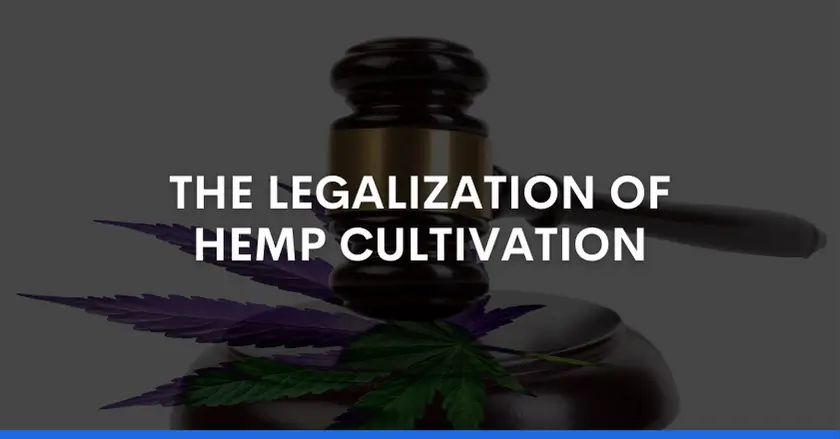
The Legalization of Hemp Cultivation
In recent years, there has been a significant shift in legislation regarding the cultivation and use of hemp.
Many countries have legalized hemp cultivation, recognizing its economic potential and the numerous uses of hemp for various industries.
The hemp cultivation legalization has opened up new opportunities for businesses and entrepreneurs.
Farmers can now grow hemp legally and create a sustainable source of income.
It has led to the establishment of hemp farms and a thriving hemp industry developed, generating employment and economic growth.
The hemp legalization has also created a favorable environment for research and innovation.
Scientists and researchers can study and explore the full potential of hemp, unlocking new uses and applications for this versatile plant.
It has led to advancements in hemp-based technologies, products, and processes.
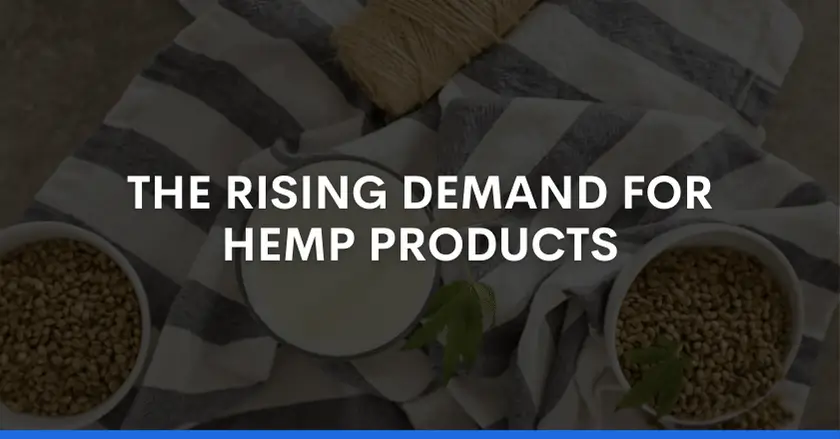
The Rising Demand for Hemp Products
The demand for hemp products has been steadily increasing in recent years.
Consumers are becoming more aware of the potential uses of hemp and are actively seeking out products that are made from or contain hemp.
One of the key drivers of this increased demand is the growing popularity of CBD oil.
CBD oil usage is due to it being a natural remedy for various individuals.
Some of the health conditions it might remedy include chronic pain, anxiety, and insomnia.
The demand for CBD oil has skyrocketed, leading to an influx of CBD-infused products, such as skincare, edibles, and beverages.
In addition to CBD oil, hemp-based textiles have also gained popularity for their sustainability and durability.
Consumers are becoming more conscious of the environmental impact of the fashion industry.
Hence, they are actively seeking out sustainable alternatives.
Hemp textiles offer a solution as they are from a renewable resource.
The rising demand for hemp products has also led to increased research and development in the industry.
Companies are investing in innovation to create new and improved hemp-based products that meet the needs and preferences of consumers.
Challenges and Opportunities in the Hemp Industry
In the fast-growing hemp industry, numerous challenges and opportunities present themselves.
From regulatory hurdles and misconceptions to international trade barriers.
And the need for sustainable farming practices and efficient processing methods.
The industry must navigate multiple obstacles to achieve its potential.
Regulatory Hurdles and Misconceptions
One of the significant challenges facing the hemp industry is the ongoing regulatory hurdles and misconceptions surrounding the plant’s association with marijuana.
Due to their similar appearance and being part of the Cannabis sativa family, hemp and marijuana have been historically linked together in the public perception.
This association has resulted in misguided policies and regulations that impede the growth and development of the hemp industry.
It has also affected the marketing strategy of hemp brands. Hence, a hemp marketing agency to aid in the growth of a hemp brand is necessary and required.
Many countries have imposed restrictions on hemp cultivation and production due to concerns over drug abuse and addiction, even though hemp contains only trace amounts of tetrahydrocannabinol (THC), the psychoactive compound found in marijuana.
But to overcome these challenges, education and awareness campaigns are essential.
Also, dispelling myths and promoting the benefits of hemp can help policymakers and the public differentiate between hemp and marijuana and understand the industry’s potential economic and environmental benefits.
Education and Awareness Campaigns
The success of the hemp industry depends on educating the public, policymakers, and stakeholders about the distinctions between hemp and marijuana.
And by providing accurate information, addressing misconceptions, and highlighting the numerous benefits and uses of hemp, education, and awareness campaigns can help shape a more favorable regulatory environment for the industry.
These campaigns should emphasize the differences in THC levels between hemp and marijuana and the diverse range of applications for hemp in various industries.
From textiles and construction materials to food and beauty products, hemp offers sustainable alternatives that can contribute to a more environmentally friendly and economically viable future.
Collaboration between industry associations, research institutions, and government agencies can play a pivotal role in promoting accurate information about hemp and fostering an environment conducive to its growth.
By sharing knowledge, supporting research, and engaging with policymakers, these efforts can help dispel misconceptions and build a solid foundation for the industry.
International Trade Barriers and Inconsistent Regulations
Another challenge the hemp industry faces is the presence of international trade barriers and inconsistent regulations.
As hemp gains global recognition for its economic and environmental benefits, trade barriers hinder the industry’s potential for growth and expansion.
Many countries impose strict import and export restrictions on hemp products, making it difficult for businesses to engage in international trade.
Inconsistencies in regulations regarding hemp cultivation, processing, and labeling further complicate matters, leading to confusion and reduced market opportunities for producers and manufacturers.
Thus, to overcome these challenges, harmonizing regulations and establishing clear international standards for hemp production and trade is necessary.
It would enable hemp businesses to navigate global markets with ease. Also, advance a more efficient and stable hemp supply chain.
The Development of Sustainable Farming Practices and Efficient Processing Methods
While challenges persist, the hemp industry also presents significant opportunities.
That is sustainable farming development practices and efficient processing methods.
Sustainable farming practices focus on minimizing environmental impact, conserving resources, and promoting biodiversity.
Hemp is known for its natural resistance to pests and diseases, making it an ideal crop for organic and regenerative farming methods.
By adopting sustainable practices such as crop rotation, organic fertilizers, and natural pest control, hemp farmers can cultivate healthy crops while minimizing the need for harmful chemicals and pesticides.
Efficient processing methods also play a crucial role in maximizing the profitability of the hemp industry.
From fiber extraction to CBD oil production, advancements in processing technologies can improve product quality, reduce waste, and optimize resource utilization.
Investing in research and innovation in hemp processing can lead to new products and the creation of value-added products.
For example, utilizing hemp biomass for biofuel production can contribute to the renewable energy sector and enhance the hemp industry’s sustainability.
Furthermore, efficient processing methods can help optimize the extraction of cannabinoids, terpenes, and other beneficial compounds from hemp.
It is particularly relevant for the booming CBD market, as consumers increasingly demand high-quality CBD products derived from hemp.
Therefore, investing in sustainable farming practices and efficient processing methods can enhance profitability and broaden the range of hemp-derived products.

